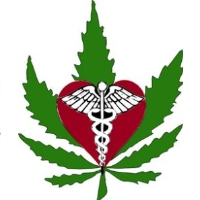Berkeley Approves “Weed Welfare” for Low-Income Residents and Homeless

It’s not exactly free pot for all, but the Berkeley City Council voted unanimously Tuesday night to amend their medical marijuana ordinance to require that dispensaries give 2% of their weed to very low-income residents and the homeless without charge.
Dispensaries must distribute 2% of the gross weight of all the marijuana they sell and it can’t be skunk weed. It has to be at least “the same quality on average” as what the paying customers get. That might be a tough one to regulate.
It should be easier to determine who qualifies. For now, any individual making less than $32,000 a year or a family of four earning $46,000 qualifies. Councilmember Darryl Moore told CBS Newst, “The city council wants to make sure that low-income, homeless, indigent folks have access to their medical marijuana, their medicine. We think this is the responsible thing to do for those less fortunate in our community.”
The council also expanded the number of dispensaries in the city from three to four and authorized the Planning Commission to consider what expanding to six licensed dispensaries would entail. Nearby San Francisco has dozens, Oakland has eight and Richman has three. But other communities in the area have none, including Walnut Creek, Concord and Moraga.
While Berkeley is trying to open more dispensaries, the U.S. Attorney’s Office is striving mightily to close them. By Berkeley Medical Cannabis Commission member Charles Pappas’ count, the U.S. attorney has closed 11 dispensaries in San Francisco and threatened a lot more in the Bay Area.
The state went after the Berkeley Patients Group (BPG), one of California’s largest dispensaries, in February 2011. The Board of Equalization (BoE) claimed that the group owed more than $6.4 million in back sales tax and interest for years 2004-2007. That figure grew to $7.5 million. The group, which started paying the sales tax in 2007, argued that it didn’t have to pony up because marijuana qualified as non-taxable medicine at a time when the laws were murky. They settled a year ago for $49,500.
The drug laws are still murky. Marijuana is illegal under federal law. California voters legalized it in 1996 for medical use and authorized dispensaries in 2004.
The U.S. Attorney’s office came after BPG in May 2012. The group was forced to move from its home of 12 years, which was 906 feet from a school (the requirement was 1,000 feet) and relocated to shabbier digs blocks away. They are expected to be back in court later this year, but in the meantime a spokesman told Al Jazeera that the group will continue its own 15-year-old policy of handing out marijuana to the needy.
While Berkeley is gravitating toward so-called “weed welfare,” Congress is making noise about going in another direction.
Representative Paul Gosar (R-Arizona) has introduced H.R. 4142, the “No Weed for Welfare Act.” It would prohibit marijuana from being bought by people using Temporary Assistance for Needy Families (TANF) or the Supplemental Nutrition Assistance (SNAP) programs. The latter is more commonly known as food stamps. His bill would add marijuana to the list of indulgences welfare recipients must avoid, including strip clubs, liquor and casinos.
The legislation was introduced March 4 and, according to govtrack, it has 0% chance of being enacted.
–Ken Broder
To Learn More:
Berkeley Dispensaries to Provide Free Marijuana to Low-Income Members (by Chris Roberts and Cheryl Hurd, NBC Bay Area)
Berkeley Okays Fourth Dispensary, Free Weed (by David Downs, East Bay Express)
Berkeley Mulls Proposal to Provide Free Medical Marijuana (Al Jazeera)
San Jose Finalizes “de Facto Ban” on Medical Marijuana (by Ken Broder, AllGov California)
- Top Stories
- Controversies
- Where is the Money Going?
- California and the Nation
- Appointments and Resignations
- Unusual News
- Latest News
- California Forbids U.S. Immigration Agents from Pretending to be Police
- California Lawmakers Urged to Strip “Self-Dealing” Tax Board of Its Duties
- Big Oil’s Grip on California
- Santa Cruz Police See Homeland Security Betrayal in Use of Gang Roundup as Cover for Immigration Raid
- Oil Companies Face Deadline to Stop Polluting California Groundwater





